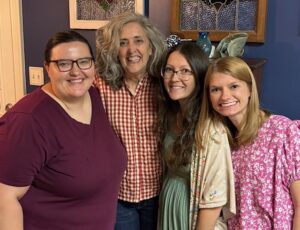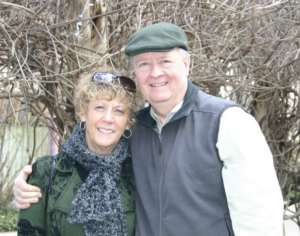 I have triggers. When I hear an ice cream truck, something in me immediately goes back to 1205 Eisenhower Drive, my childhood home. When I smell popcorn, I’m in National Hills Theater and in my happy place. The picture of a margarita will send me a craving. I haven’t had a drink in 25 years, but the picture of a margarita still sends me back. What are your triggers?
I have triggers. When I hear an ice cream truck, something in me immediately goes back to 1205 Eisenhower Drive, my childhood home. When I smell popcorn, I’m in National Hills Theater and in my happy place. The picture of a margarita will send me a craving. I haven’t had a drink in 25 years, but the picture of a margarita still sends me back. What are your triggers?
Think of an emotional trigger like a little internal tether. It links us emotionally to something behind us. Sometimes that thing is good (like the smell of coffee in the morning) and sometimes it is not so good.
I often equate triggers with the struggle of the Israelites out in the desert, with Egypt on one side and the promised land on the other. They seemed to live in a constant internal tension, trying to press forward while Egypt called them backward. That seems to be the human condition. We tell ourselves little lies all the time that head us back toward Egypt. We romanticize slavery. That other life was simpler, less stressful. Or maybe it wasn’t so fun, but at least we didn’t have to work as hard. And those tiny internal justifications stir us to head back toward things that enslave us.
Once in the midst of Israelite complaints, God did a miracle. He turned bitter water sweet and then gave them this revelation: “I am the LORD who heals you.’” They named that place “Marah.” It became the place in their story where God spoke the kind of healing that turns bitter things sweet.
That makes Marah an important place on the spiritual map. It is the place we pass through that is hard, like the bitterness that settles in after the initial shock of divorce or the loneliness that follows rejection. Or the emptiness that follows loss. It is that place after a blow or temptation when we don’t quite know what to do next. When we aren’t aware of what is going on inside, we will struggle to press forward. We’ll long for Egypt, for old familiar territory. Virginia Satyr says that most people prefer the certainty of misery than the misery of uncertainty. We’d rather head back to Egypt than learn to live as healthy people, but Egypt is diseased while “I AM the God Who Heals You.”
Out in the desert, God explains to the Israelites what they are dealing with. “When you begin to do holy, you will tempted to go backward but there is no healing for you in Egypt. And there is no healing for you in the place you’re headed if all you do is drag your enslaved mentality with you to that new place. Freedom is in the God who heals you” (see Lev. 18). The trick, God seems to tell them, is to understand their triggers so they can get control of them.
Learn your triggers. Folks who have dealt with addictions and messy lives find they are much more successful in recovery when they learn what their triggers are. Heather Hill, once an addict and now free from that life, gives some powerful advice about triggers:
Being triggered does not make me a bad Christian. It doesn’t mean I lack faith or that I am somehow less than. And the moment I start believing it does, I am that much closer to giving in to it. Triggers are simply remnants of my old self hanging on for dear life, because the old me doesn’t want to die. They are my thorn, reminding me of who I once was and reminding me how much I will always need God. My triggers are not in control. They don’t drive the bus. The most dangerous thing about a trigger is the urge that follows. And it’s tough, because it usually includes a physical reaction I cannot control.
The urge that follows my trigger only last about three minute. It used to last longer. I have found that the harder I fight the urge, the longer it lasts. When I rail against it in anger or disgust (because I believe the above point), I am thinking about it harder than I ought. When I am triggered to the point of an urge, the best thing to do is absolutely nothing. Pray it out. Wait it out. Don’t DO anything. Focus on God and pray until it is over. In rehab, we called it “urge surfing.” Because it comes in like a wave, peaks, and rolls out again.
There are practical ways to avoid my triggers. There are the obvious ways, like avoiding people, places and things. But when that isn’t possible (like when my family member is a trigger), the best way to overcome them is to understand them. Understanding why someone or something triggers me is the best way to move towards healing.Understanding removes the aspect of fear and confusion from the equation. And it gives me a point of focus for my prayers. I am triggered because I am a broken human being who needs healing.
Understanding my triggers helps me understand my brokenness. My best defense against triggers has always been gratitude. Remembering what God has done for me, how far he has carried me, all he has redeemed in my life, keeps me moving forward.
Healthy, life-giving relationships are key to recovery. We may always experience triggers, but we never have to face them alone. We are surrounded by a community of people who love us and want to see us healed. God is for us. His people are for us.








